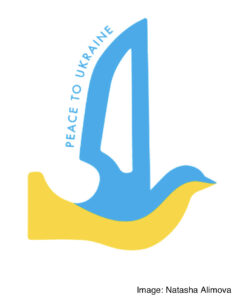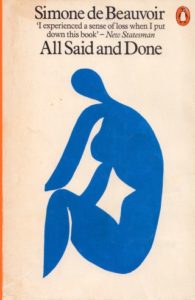Satre
Thursday, March 24th, 2022
March 24, 2022Slava Ukraini
‘Perhaps Sartre was not far wrong in saying that where freedom is abused, society itself turns into hell.’
L’enfer c’est les autres.
Richard Rohr, Center for Action and Contemplation:
“When you say you love God, you are saying you love everything (being Gaia). That’s why mystics can love the foreigner, the outsider; in fact, they cannot not love them, because they see truthfully and fully!”
“Return of the Divine Feminine (Mary Magdalene). As the late physicist David Bohm put it, ‘Something more than siren is needed.’ Values are needed, as well as the passion and courage to live them and put them into practice.”
-Matthew Fox
“Meister Eckhart, “Nature is grace.” Creation spirituality. A return to love.
Gnostic gospels of Thomas, Philip and Mary, right practice v. right behavior, the Canonical gospels, Matthew, Mark, Luke, and John.
Cynthia Bourgeault, Episcopalian priest:
‘Mary Magdalene’s place of honor is so strong that even the heavy land of a later (300 years), male-dominated ecclesiology cannot entirely dislodge it. […] The high position she held among the close followers of Jesus is more explicitly shown in the Gnostic Gospels where Mary Magdalene is seen as “First among the the Apostles”, not because she was the first on the scene at the ressurectioin but in a more fundamental way: because she gets the message. Of all the disciples, she is the only one who fully understands what Jesus is teaching and can reproduce it in her own life. Her position of leadership is earned, and it is specifically validated by Jesus himself.’
Again, it’s right belief v. right practice. Spiritual Creation is practice. “When you love god, you love everything. That’s why the musics can love the foreigner, the outsider; in fact, they cannot not love them, because they see truthfully and fully” (Richard Rohr).
“The world will only change as we change.”
[Now on Netflix]
Marianne Williamson:
“America has lost its capacity to respond to an emergency. Materialism and consumerism have made us dense and sluggish and unable, or unwilling, to collectively respond to even dangers in our midst.” ❁
Constellation of Chance & Choice
January 9, 2020“My life … runs back through time and space to the very beginnings of the world and to its utmost limits. In my being I sum up the earthly inheritance and the state of the world at this moment.”
Maria Popova: Perhaps our most acute awareness of the lacuna between the one life we do have and all the lives we could have had comes in the grips of our fear of missing out — those sudden and disorienting illuminations in which we recognize that parallel possibilities exists alongside our present choices. “Our lived lives might become a protracted mourning for, or an endless tantrum about, the lives we were unable to live,” wrote the psychoanalyst Adam Phillips in his elegant case for the value of our unlived lives. “But the exemptions we suffer, whether forced or chosen, make us who we are.”
The garland of those exemptions strews our sense of self — our constellating experience of personal identity which, as the poet and philosopher John O’Donohue so incisively observed,”is not merely an empirical process of appropriating or digesting blocks of life.”
No one has captured that ultimate existential awareness more beautifully, nor with greater nuance, than the trailblazing French existentialist philosopher and feminist Simone de Beauvoir (January 9, 1908–April 14, 1986)
The penetration of that particular ovum by that particular spermatozoon, with its implications of the meeting of my parents and before that of their birth and the births of all their forebears, had not one chance in hundreds of millions of coming about. And it was chance, a chance quite unpredictable in the present state of science, that caused me to be born a woman. From that point on, it seems to me that a thousand different futures might have stemmed from every single movement of my past: I might have fallen ill and broken off my studies; I might not have met Sartre; anything at all might have happened.
Tossed into the world, I have been subjected to its laws and its contingencies, ruled by wills other than my own, by circumstance and by history: it is therefore reasonable for me to feel that I am myself contingent. What staggers me is that at the same time I am not contingent.
If I had not been born no question would have arisen: I have to take the fact that I do exist as my starting point.
To be sure, the future of the woman I have been may turn me into someone other than myself. But in that case it would be this other woman who would be asking herself who she was. For the person who says “Here am I” there is no other coexisting possibility. Yet this necessary coincidence of the subject and his history is not enough to do away with my perplexity. My life: it is both intimately known and remote; it defines me and yet I stand outside it.
Chance … has a distinct meaning for me. I do not know where I might have been led by the paths that, as I look back, I think I might have taken but that in fact I did not take. What is certain is that I am satisfied with my fate and that I should not want it changed in any way at all. So I look upon these factors that helped me to fulfill it as so many fortunate strokes of chance.
https://www.brainpickings.org/2017/01/06/simone-de-beauvoir-all-said-and-done-chance-choice/


